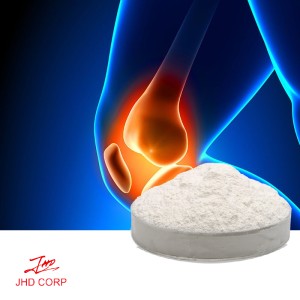Which is better, chondroitin sulfate or glucosamine, as an auxiliary treatment for arthritis?
It is also important to consider individual differences in response to these supplements. Some people may respond better to chondroitin sulfate, while others may experience greater benefits from glucosamine.
Chondroitin sulfate and glucosamine are both popular dietary supplements used as auxiliary treatments for arthritis. These supplements are often taken together, as they are believed to have complementary effects in supporting joint health and reducing arthritis symptoms. However, the question of which is better – chondroitin sulfate or glucosamine – remains a topic of debate among healthcare professionals and researchers.
Chondroitin sulfate is a naturally occurring compound found in the cartilage of joints. It is believed to help maintain the structural integrity of the cartilage and prevent its degradation. Glucosamine, on the other hand, is a compound that is also found in the body and is a precursor to the formation of molecules that are essential for the maintenance of joint health.
Several studies have been conducted to evaluate the effectiveness of chondroitin sulfate and glucosamine in the treatment of arthritis. While some studies have shown positive results in terms of pain reduction and improved joint function, others have yielded inconclusive findings. It is important to note that the quality of these studies varies, and more high-quality research is needed to draw definitive conclusions about the efficacy of these supplements.

One factor to consider when comparing chondroitin sulfate and glucosamine is their mode of action. Chondroitin sulfate is believed to have anti-inflammatory properties and may help reduce joint pain and swelling. Glucosamine, on the other hand, is thought to stimulate the production of cartilage and other joint tissues, thereby promoting joint repair and maintenance.
It is also important to consider individual differences in response to these supplements. Some people may respond better to chondroitin sulfate manufacturers in China, while others may experience greater benefits from glucosamine. Additionally, the severity and type of arthritis may also influence the effectiveness of these supplements.
When considering the use of chondroitin sulfate and glucosamine as auxiliary treatments for arthritis, it is essential to consult with a healthcare professional. They can provide personalized recommendations based on an individual's specific health status and medical history. It is also important to discuss potential risks and interactions with other medications or treatments.
In conclusion, the question of which is better – chondroitin sulfate or glucosamine – does not have a straightforward answer. Both supplements have been used as auxiliary treatments for arthritis, and their effectiveness may vary from person to person. More high-quality research is needed to determine their true efficacy and safety. Individuals considering the use of these supplements should seek guidance from healthcare professionals to make informed decisions about their arthritis treatment plan.















